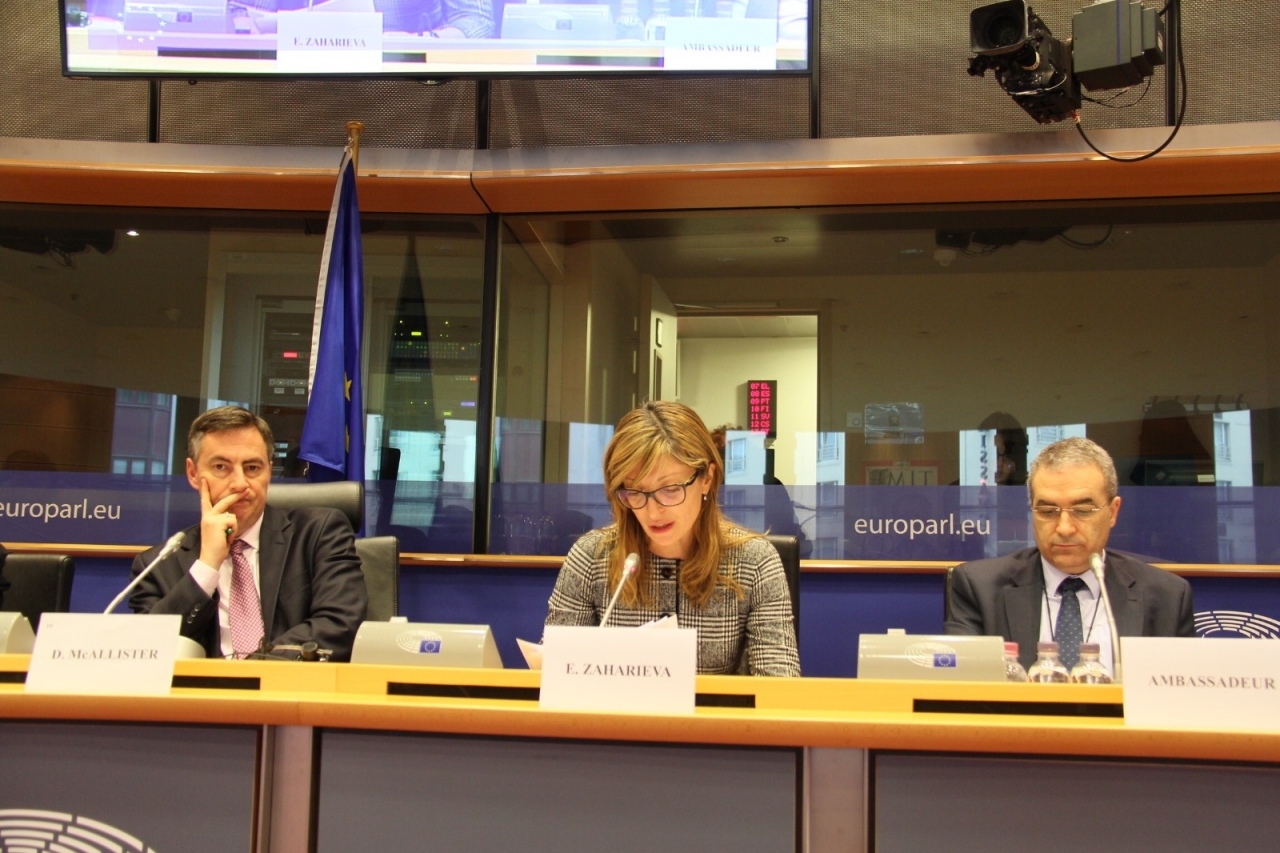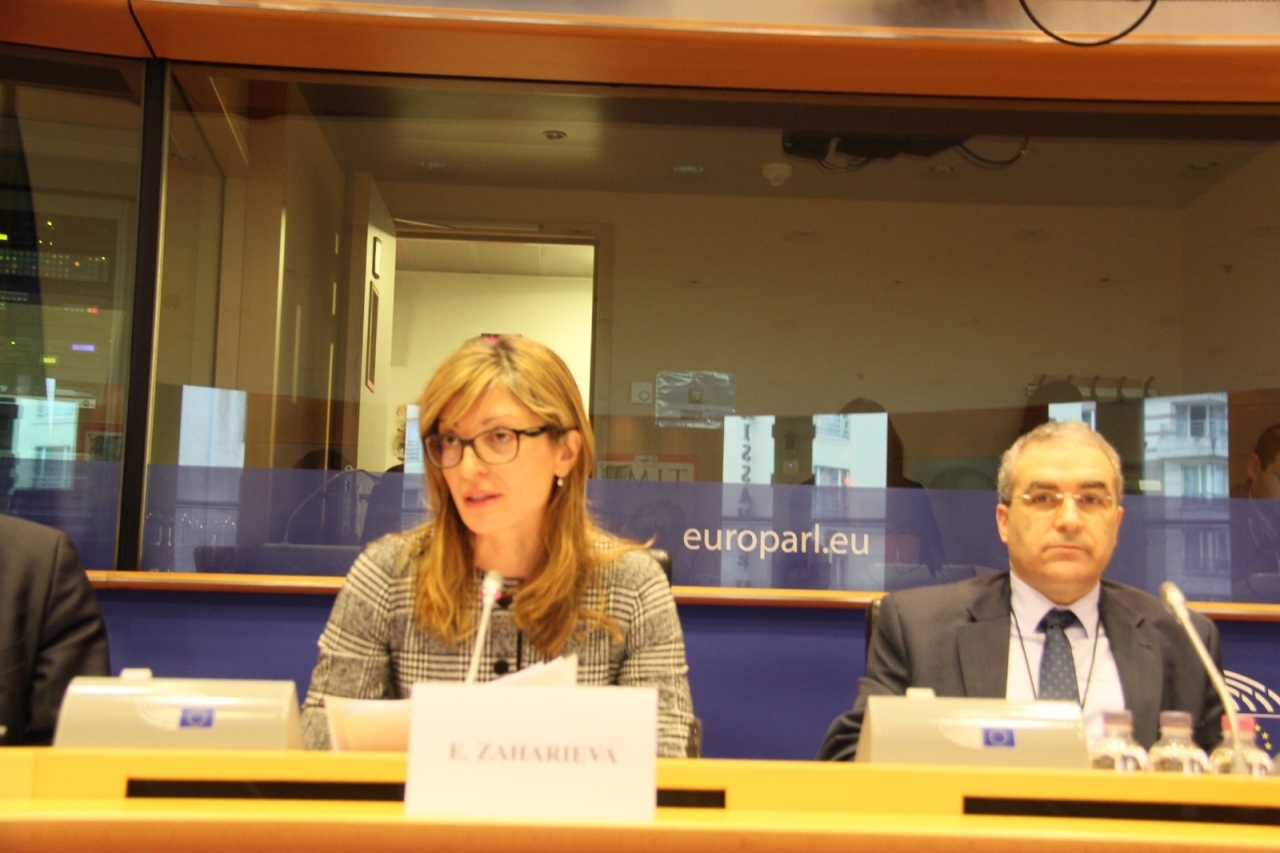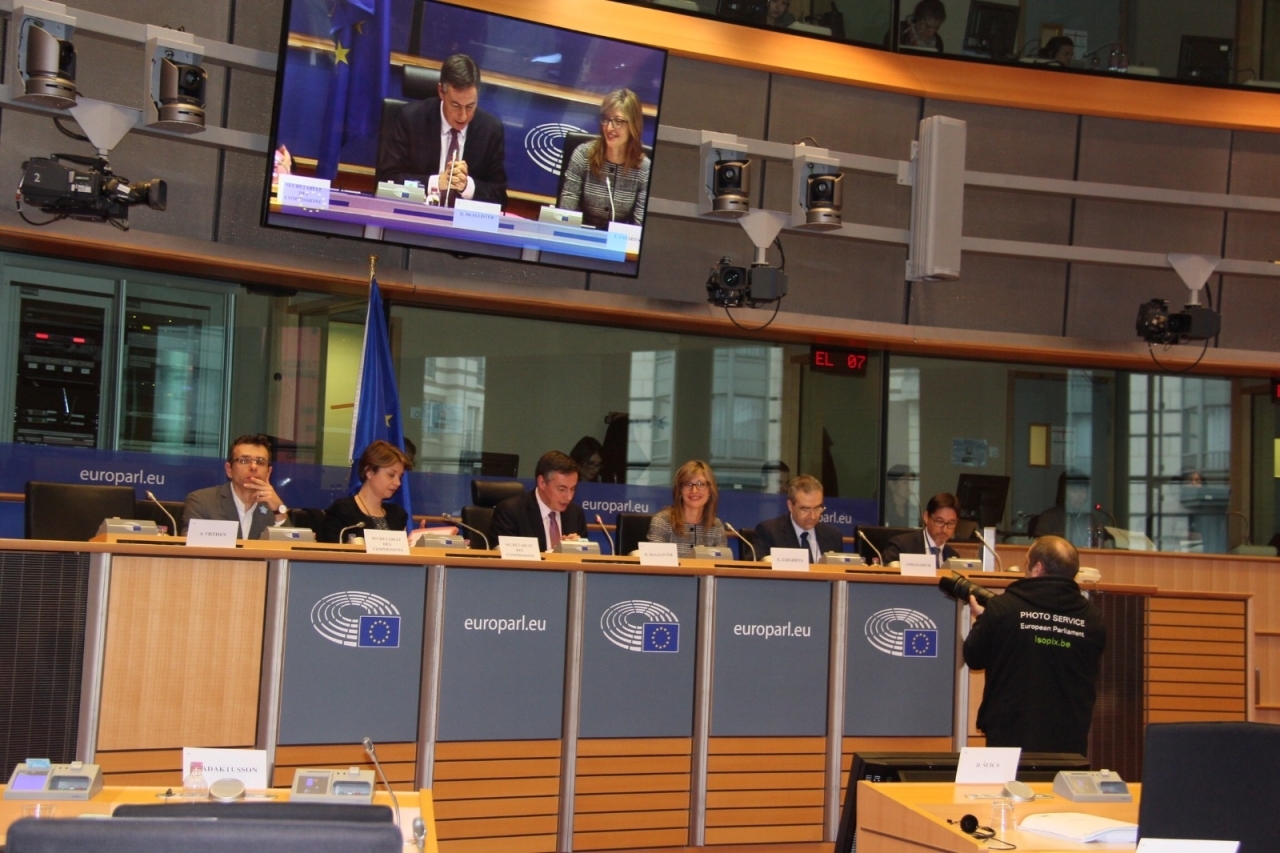Ekaterina Zaharieva Presents the Presidency Priorities to the Committee on Foreign Affairs of the European Parliament
23 January 2018 News
Deputy Prime Minister and Minister of Foreign Affairs Ekaterina Zaharieva presented the purposes and tasks of the Bulgarian Presidency of the Council of the European Union at a meeting of the Committee on Foreign Affairs (AFET) of the European Parliament in Brussels.
Zaharieva listed the four priorities of the Presidency: the future of Europe and young people – economic growth and social cohesion; the European perspective and connectivity of the Western Balkans; digital economy and skills for the future; and security and stability in a strong and united Europe.
“The Western Balkans are immensely important for Europe’s well being. A secure and stable Europe is impossible without secure and stable Balkans,” the chief Bulgarian diplomat stressed, addressing the MEPs. She noted that the summit in Sofia in May 2018 will be the first event at this level since the meeting in Thessaloniki in 2003.
“We must hear the say of young people about the future of Europe. We must encourage our citizens’ creative skills for the digital age,” Zaharieva said further on. The efforts of the Presidency will also target stronger and more secure external borders.
In the AFET meeting room, where representatives of all six Western Balkan countries which are not EU members (Albania, Bosnia and Herzegovina, Kosovo, the Republic of Macedonia, Montenegro and Serbia) were also present, Ekaterina Zaharieva detailed her audience about the views of the Presidency regarding the prospects of the region. “We witnessed a number of positive developments in 2017. Notwithstanding, challenges are lingering: both external challenges, posed by outside factors’ intervention, and internal challenges, mainly related to the rule of law, the socio-economic conditions and the formation of multi-ethnic societies. High unemployment levels and the lack of prospects make certain groups, and especially young people in those countries, more susceptible to radicalisation. These are just part of the reasons why the Western Balkans need more tangible support on the part of the EU. Otherwise, we risk a spread of instability in the region and a resurgence of threats and risks to EU security.”
“More attention has to be paid, and more funds have to be allocated for response to common challenges like migration, energy security, terrorism and radicalisation, corruption and organised crime while, at the same time, consolidating civil society,” Minister Zaharieva stressed further on.
“There is no void in the Western Balkans, unless we are there, somebody else, who is not part of the European family and of NATO, will move into this niche,” she assured the MEPs.
Click HERE for a full video of the Minister’s statement and her answers to the MEPs’ questions



